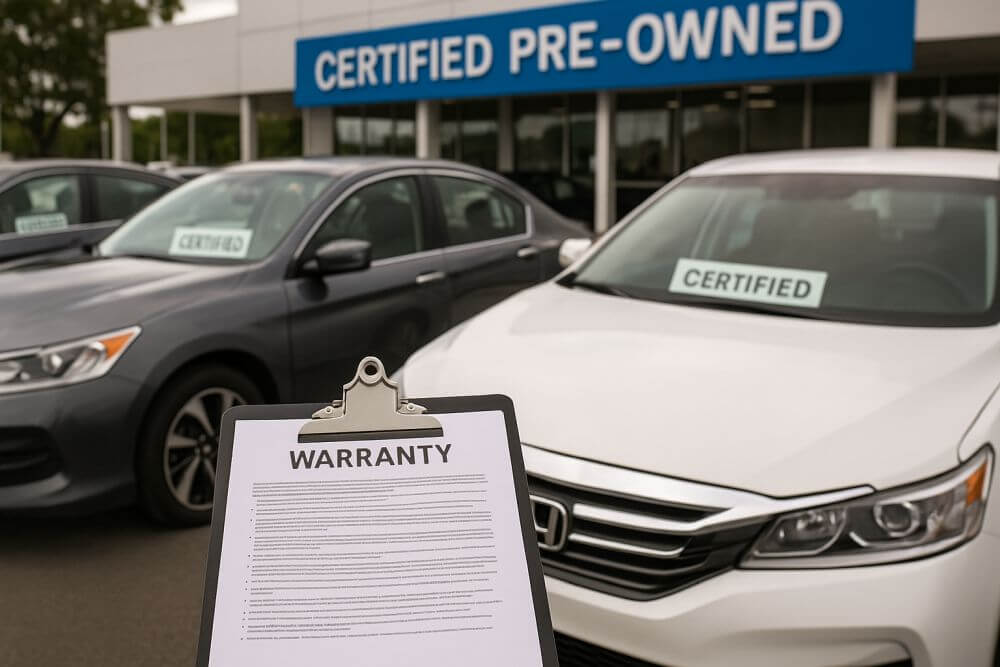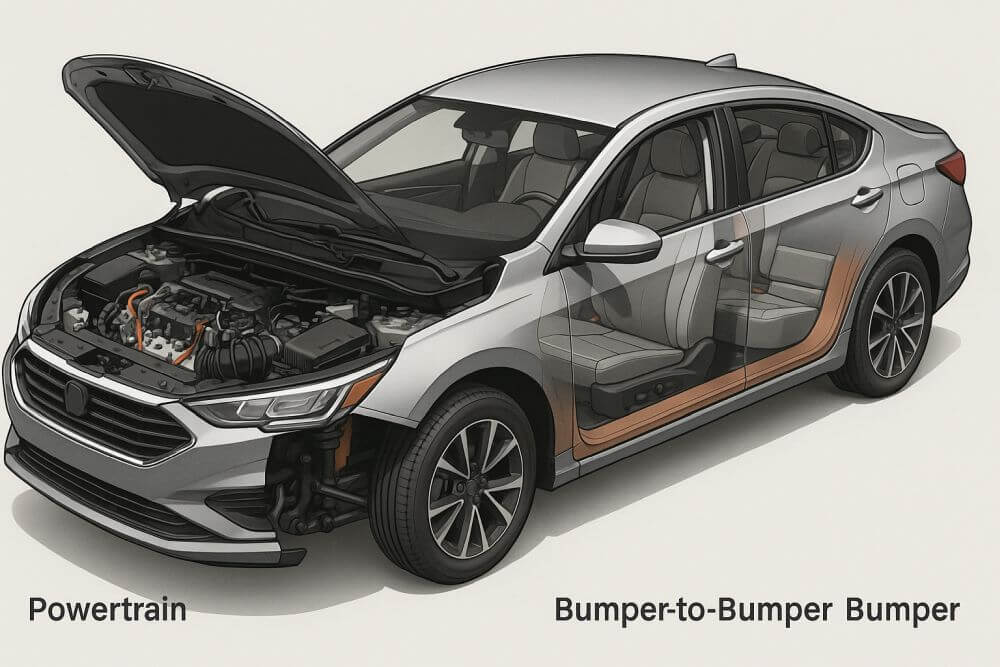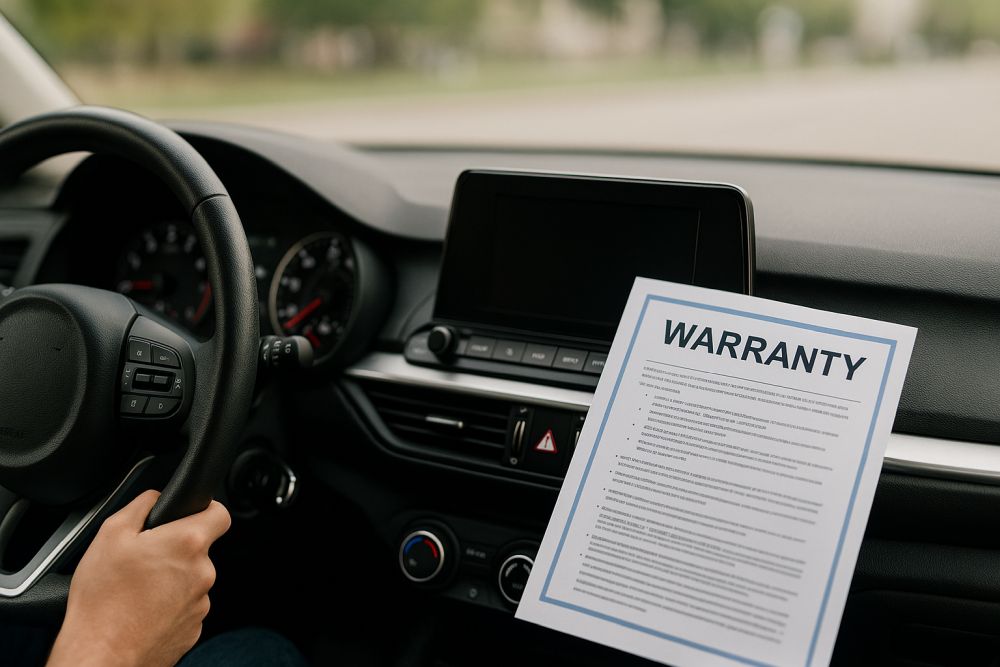
In March 2024, KBB reported that the average buyer spent $47,218 on a new car, the lowest amount in almost two years. As new car prices drop, more buyers might choose to buy new vehicles instead of used ones. This could reduce demand for used cars, potentially leading to a decrease in their prices.
Now is the perfect moment to snag a great deal on a car! But beware—some scammers might take advantage of the excitement to trick unwary buyers.
As with everything else in life, finding the right used car can be like walking through a minefield—one wrong step, and you could end up with a world of regrets.
Before you get caught in a too-good-to-be-true deal, read on for essential tips on negotiating the best price, and be sure to run a license plate lookup for Michigan to get a car report.
Do Your Homework: Understand Vehicle History
Before jumping into negotiations, it’s wise to run a Michigan license plate search to reveal the vehicle’s history. This will give you a clearer picture of the car’s value and allow you to approach the deal with confidence.
Here’s a glimpse of what a typical car report might include. Keep in mind that not every detail may appear for a specific vehicle, as each car has a unique story.
| Vehicle Specifications | Get detailed info about the car’s make, model, engine type, and other key specifications. |
| Title Status | Check if the car has a clean title or if it’s been marked as salvage, rebuilt, or has other title issues. |
| Ownership History | Find out how many previous owners the car has had and how long each owned it. |
| Manufacturer Recall Information | Check if the car has any recalls and if those issues have been addressed. |
| Flood Damage Records | Check if the vehicle has ever been exposed to flood conditions or suffered water damage. |
| Theft Records | Determine if the vehicle has ever been reported stolen or involved in theft-related incidents. |
| Lien Records | Identify any existing liens or financial obligations tied to the vehicle. |
| Warranty | Information about the existing manufacturer or extended warranty, including coverage details, duration, and any exclusions, which can protect against unexpected repair costs. |
| Market Value | The current estimated market value of the vehicle, based on factors like age, condition, mileage, and demand, helping buyers and sellers understand its worth in the used car market. |
| Ownership Cost | An estimate of the total cost of owning the vehicle, including factors like insurance, fuel, maintenance, and depreciation, providing a comprehensive view of long-term expenses. |
| Safety Ratings | The vehicle’s safety ratings from recognized organizations like the National Highway Traffic Safety Administration (NHTSA) or the Insurance Institute for Highway Safety (IIHS), indicating its performance in crash tests and overall safety features. |
Aside from the Michigan license plate number lookup, you should research the car’s market value using resources like Edmunds or NADA. Knowing the average price for a specific Michigan car will give you a strong foundation for negotiations.
Inspect the Car Thoroughly
Either inspect the car yourself or hire a mechanic to do a pre-purchase inspection. Use any issues found as leverage to negotiate a lower price or request repairs before purchase.
-
- Exterior Condition: Check for rust, dents, and paint condition.
- Tires: Inspect tread depth and look for uneven wear.
- Engine and Fluids: Check the engine for leaks, and inspect oil, coolant, and transmission fluid levels.
- Interior Condition: Look for wear and tear on seats, dashboard, and electronics.
- Lights and Signals: Ensure all lights, signals, and indicators function properly.
- Mileage: Compare the odometer reading with the vehicle’s age to ensure it’s reasonable.
- Test Drive: Evaluate how the car drives in terms of performance and comfort.
1. Suspension: Check for smoothness over bumps and listen for any clunking noises.
2. Brakes: Test brake responsiveness and listen for any unusual noises.
3. Acceleration: Assess how quickly the car accelerates from a stop and during highway merging. Pay attention to any hesitation or unusual engine sounds.
4. Steering: Evaluate how the steering feels—whether it’s responsive and precise. Notice if the car pulls to one side or if there’s excessive play in the steering wheel.
Know the Seller’s Motivation
If the seller is looking to close a deal fast, you could have a better chance to negotiate—though that’s not always the case. Dig deeper by asking why they’re parting with the car and how long it’s been up for sale. Their responses will reveal whether you should push for a better deal or move on.
Safe Seller Motivations:
-
- Upgrading or Downgrading Vehicles: The seller might be looking to upgrade to a newer model or downgrade to a smaller, more economical car.
- Relocating: The seller may be moving to a new city or state where they don’t need a car or require a different type of vehicle.
- Financial Needs: The seller may need quick cash for legitimate reasons like paying off debt, medical expenses, or other financial obligations.
- Lack of Use: The seller may no longer need the car due to lifestyle changes, such as retirement or working from home.
Unsafe Seller Motivations:
-
- Hiding Mechanical Issues: The seller might be offloading the car quickly to avoid dealing with expensive repairs or known mechanical issues.
- Title Problems: The seller may be trying to sell a car with a problematic title, such as a salvage title or unpaid liens, and hopes the buyer won’t notice.
- Flood-Damaged or Accident History: The seller may be trying to offload a vehicle that has been in a severe accident or has flood damage, which could lead to future problems for the buyer.
- Scams or Fraud: The seller may have a stolen vehicle or be part of a scam to get money from buyers without delivering a legitimate product or by misrepresenting the car.
Consider Timing
Shop during off-peak times, such as the end of the month or during winter months when demand is lower in Michigan. Sellers may be more willing to negotiate during these periods.
Start with a Lower Offer
Begin negotiations with an offer lower than what you’re willing to pay, leaving room to meet in the middle. Be prepared for some back-and-forth before reaching a final agreement
Use Silence as a Tool
After making your offer, don’t be afraid to pause and let the seller respond. Silence can put pressure on the seller to consider your offer more seriously.
Highlight Comparable Listings
Show the seller similar cars for sale in Michigan that are priced lower. This can help justify your offer and encourage the seller to lower their price.
Be Ready to Walk Away
If the negotiations aren’t going in your favor, be prepared to walk away. Sometimes, the willingness to leave the deal can prompt the seller to reconsider their price.


